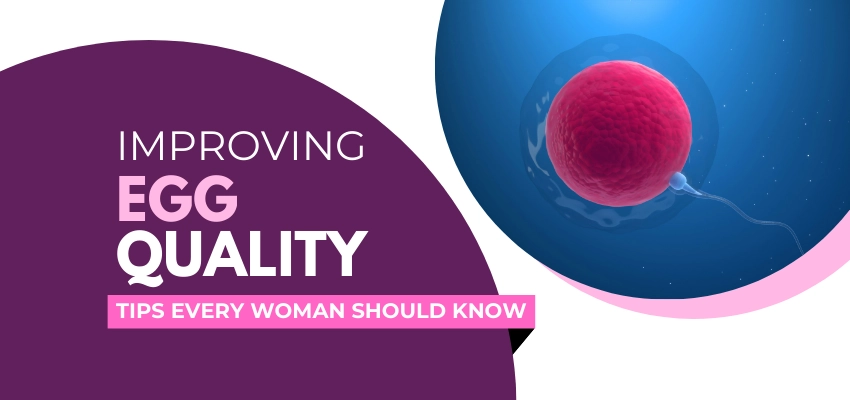
Fertility is closely linked to the health of a woman’s eggs. While age plays an important role, lifestyle choices and daily habits also have a significant impact. For women trying to conceive—whether naturally or through treatments like IVF—focusing on egg quality can improve the chances of successful fertilization and pregnancy.
Here are some practical, science-backed tips every woman should know to enhance egg health.
1. Maintain a Healthy Diet
Nutrition forms the foundation of reproductive health. A diet rich in antioxidants, vitamins, and minerals helps protect eggs from damage and supports overall fertility.
Best foods for egg health include:
2. Manage Stress Levels
Chronic stress can disrupt hormones and interfere with ovulation. Adopting relaxation practices can support mental well-being and fertility.
Simple practices to try:
3. Avoid Smoking, Alcohol, and Excess Caffeine
Unhealthy lifestyle habits can accelerate egg aging and reduce fertility. Cutting back—or eliminating them—helps protect reproductive health.
4. Stay Physically Active
Moderate exercise improves blood circulation, balances hormones, and helps maintain a healthy weight, all of which contribute to better egg quality.
Recommended routine:
5. Prioritize Quality Sleep
Sleep is vital for reproductive hormones such as melatonin and cortisol, which influence egg health. Aim for 7–8 hours of sound sleep every night.
6. Consider Fertility-Friendly Supplements
Some nutrients directly support egg quality. Always consult a doctor before starting supplements, but commonly recommended options include:
7. Go for Regular Health Checkups
Underlying conditions such as PCOS, thyroid disorders, or diabetes can impact fertility. Regular medical checkups help detect and manage these issues early, protecting egg health in the long run.
Final Takeaway
Although age cannot be changed, women can take proactive steps to improve egg quality through a healthy lifestyle, nutrition, stress management, and medical support. Whether you’re preparing for natural conception or undergoing fertility treatments, caring for your reproductive health today can make a meaningful difference tomorrow.